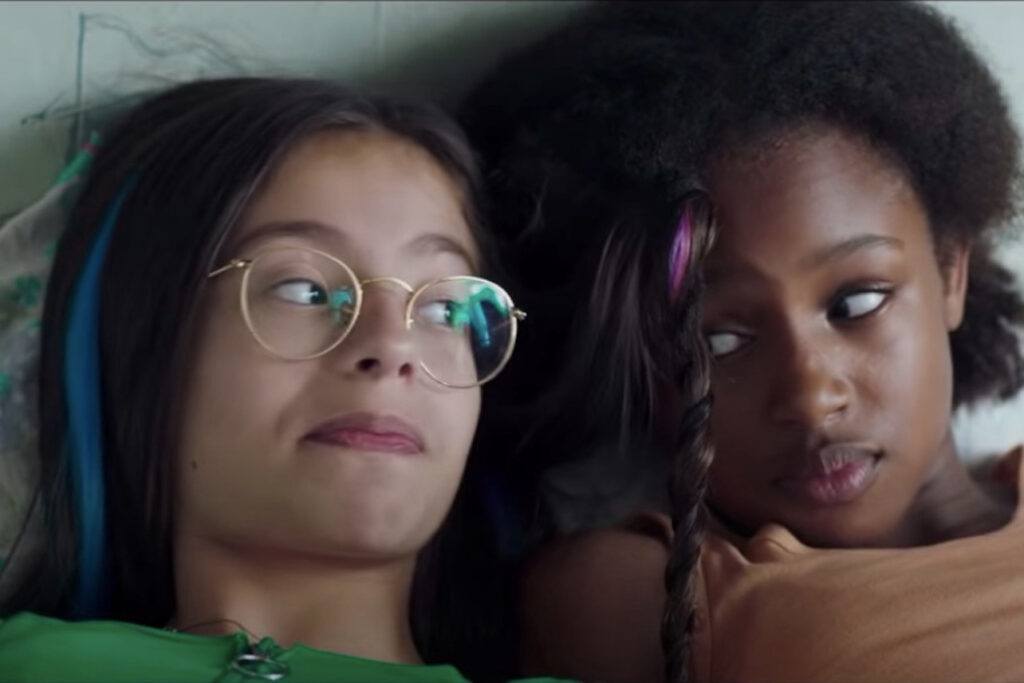
To describe the recent backlash over Netflix’s Cuties as the dumbest thing to happen in 2020 isn’t quite accurate. After all, this is a year where the President of the United States mused about the possibility of Americans injecting themselves with bleach in order to kill the coronavirus, prompting the Consumer Product Safety Commission to warn citizens that, no, consuming cleaning products is not in fact a good idea. Every era has its own advancements, and to live in America in 2020 is to bear witness to astonishing breakthroughs in the field of stupidity. So, when a U.S. Senator sent a letter last week to the Attorney General urging him to mobilize the Department of Justice and investigate Netflix—specifically, to determine whether the streaming giant, in releasing a motion picture, had “violated any federal laws against the production and distribution of child pornography”—it probably wasn’t the most flagrant example of rank idiocy to infect our nation’s shores over the past year. But it was very, very dumb.
Or maybe it was more insidious than inane—a trolling maneuver designed to own the Hollywood libs. Regardless of intent, the result is that Cuties—which, in point of fact, happens to be a French coming-of-age film directed by Maïmouna Doucouré—has now been vociferously condemned as an exploitative piece of pornographic filth, both by the conservative mainstream (multiple Republican senators got in on the act) and the lunatic fringe (QAnon, 4chan). The outcry has been as loud as it is ludicrous; as of this writing, over 650,00 people have signed a Change.org petition urging Netflix customers to cancel their subscription, while hashtags like #CancelNetflix and #NetflixPedofilia (in Latin America) have trended on Twitter.
How on earth did we get here? How did a sweet, sad little movie about cultural dysphoria and adolescent anxiety result in politicians demanding congressional inquiries? You might think that, in order to understand why people are so enraged about Cuties, you first need to understand what Cuties is. But it’s slightly more twisted than that. In actuality, the imbeciles who are so infuriated by Cuties pointedly misunderstand what it is. Cuties isn’t an exploitative movie; it’s a movie about exploitation. More precisely, it’s about the ways that young girls feel compelled to behave in a society that aggressively sexualizes women.

That degree of nuance is likely to be lost on those who haven’t seen the film, as most of its objectors assuredly haven’t. (Refusing to do so seems to be a point of pride, at least if Ted Cruz’s spokeswoman is to be believed.) Now, becoming intimately familiar with art isn’t necessarily a prerequisite for criticizing it; for example, when word recently leaked that J.K. Rowling’s upcoming novel will deploy transphobic tropes, readers were understandably sickened, given that the author is a known bigot. (And just to fulfill Godwin’s Law: I’m fairly confident that I don’t need to read Mein Kampf to know that its rhetoric is abhorrent.) But these detractors’ obstinate refusal to watch Cuties strikes me not as principled behavior but willful ignorance. It’s impossible to grapple with a picture’s context if you happily shield yourself from it.
To be clear, the tactic of weaponizing preemptive outrage against a movie is nothing new; for years, internet fanboys have engaged in “review bombing” against films they’ve never seen, especially when said films star or are directed by women. (Hilariously, just days after its release, Cuties sported an 88% critics’ score on Rotten Tomatoes and a 3% audience score; over on IMDb, its user rating sat at a putrid 1.7/10.) But there’s something particularly troubling about the fire-and-brimstone campaign against Cuties—not just because it’s been made by a woman of color, but because it astutely interrogates the hyper-sexualized, image-obsessed culture that it’s been so pigheadedly accused of endorsing.
I’m not sure that it even matters at this point—any discussion of its merits has been far outstripped by the ginned-up controversy surrounding its creation and distribution—but Cuties is, to this critic’s eyes, a pretty good movie. It’s no masterpiece; its secondary characters are thin, and it doesn’t perfectly harmonize its grittiness with its lyricism. But it’s an assured debut feature, with a sympathetic protagonist and a strong thematic throughline.

Those themes, as in all worthwhile coming-of-age pictures, are both universal and specific. Amy (Fathia Youssouf Abdillahi), an 11-year-old Senegalese immigrant living in France, yearns to assimilate and make friends, which is why she finds herself drawn to a quartet of peers who practice provocative dance routines. Initially, they aren’t welcoming to outsiders—when they first spy Amy watching them, they greet her by throwing rocks at her head—but Amy’s desperation to fit in leaves her undeterred. (The scene where she singes her hair with an iron while attempting to mimic an exuberant neighbor is one of the film’s sharpest details.) And so she draws upon her social-media expertise—along with her imitative gifts—and impresses her classmates with her knowledge of twerking.
Egads! An 11-year-old girl twerking! It’s an uncomfortable sight, and that discomfort is precisely Doucouré’s point. (If Netflix is guilty of anything, it’s marketing the film with a glitzy, misguided poster that fails to communicate this subtext.) Yes, Cuties contains a number of scenes in which young girls dance suggestively, but watching those scenes in context, it seems impossible, even perverse, to perceive them as remotely titillating. To the contrary, they’re unsettling reminders of how young women see the world, and how they think the world wants to see them. The movie may feature boisterous music and flashy costumes, but its lingering impression is one of sadness. It’s a lament for Amy and all those like her, the confused girls who helplessly try to act beyond their years in order to discover a sense of belonging.
None of this has mattered to Cuties’ detractors, whose rabid response inspired Doucouré—who has reportedly received death threats—to pen an op-ed in the Washington Post, explaining that the film is designed “to start a debate about the sexualization of children in society”. She closes her column by writing, “It’s my sincerest hope that this conversation doesn’t become so difficult that it too gets caught up in today’s ‘cancel culture.’”

It’s telling that Doucouré enclosed those final two words in quotation marks. “Cancel culture” has morphed into a loaded term, one that’s most meaningful for how it carries no genuine meaning at all. It applies to everything and nothing, signaling either conservative stoutness or liberal wokeness. In a certain political imagination—one most often promoted on the right, but occasionally, as in the Harper’s Letter, by prominent leftists as well—to oppose “cancel culture” is to boldly stand for freedom of speech in the face of wanton censorship, while to support it is to espouse illiberalism and groupthink while running roughshod over the marketplace of ideas.
This is, of course, nonsense. I can neither condemn nor support “cancel culture”, because I don’t know what “cancel culture” is. Certainly, there have been instances in which actors on the left have behaved rashly in calling out bad behavior, resulting in consequences (online harassment, job loss) that were disproportionate to the alleged crime. Those unfortunate cases seem, to me, to be outnumbered by the woeful grievances emanating from powerful figures in politics and media, bemoaning that they’re no longer able to say whatever the fuck they want free from challenge. To sweep all such examples, and countless more, under the nebulous, censorial umbrella of “cancel culture” is to neuter the phrase of all value, if it even had any to begin with.
And so: I’m not objecting to the manufactured uproar over Cuties because I believe that the film has become the latest victim of “cancel culture”. I’m objecting because the people complaining about this movie—the would-be cancellers, so to speak—are either incredibly dumb, purposefully blind, or both.
Go watch Cuties. Wrestle with its messages, its iconography, its sense of cultural displacement and prepubescent confusion. Then go read the militant statements from U.S. senators insisting that the machinery of the federal government be wielded to probe the distribution of a motion picture. And then, weighing all of that evidence, ask yourself if it’s really your Netflix subscription that’s most deserving of being cancelled.
Jeremy Beck is the editor-in-chief of MovieManifesto. He watches more movies and television than he probably should.
